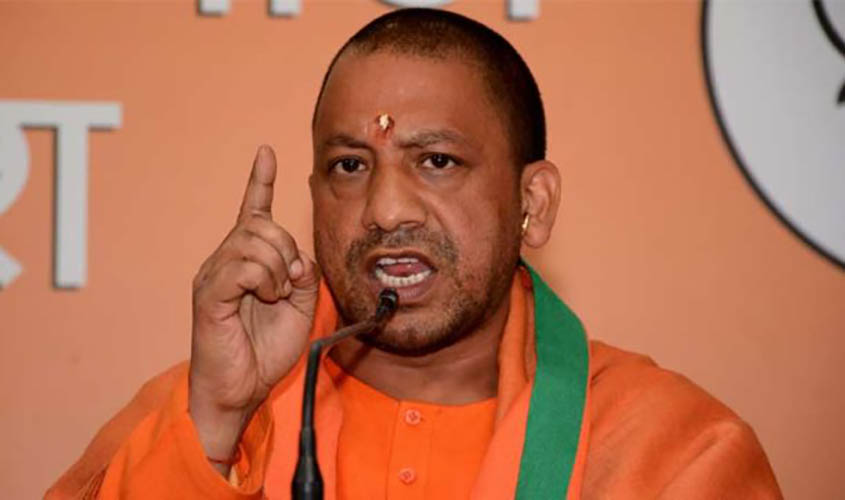Will renaming of Allahabad as Prayagraj be the precursor of bifurcation of the behemoth state of Uttar Pradesh? The decision now awaits Centre’s approval.
Yogi Adityanath has fulfilled a quarter-century-old agenda of the BJP by deciding to restore the name Prayagraj, replacing Allahabad. The decision of the Uttar Pradesh Cabinet now awaits Centre’s approval. The first BJP Chief Minister, Kalyan Singh mooted the idea in 1992 but the dismissal of his government after the Babri demolition made this an unfinished agenda. A decade later in 2001, Rajnath Singh tried to take it forward, but political instability and resultant President’s Rule obstructed him. Last week, Yogi announced the decision in Allahabad while presiding over a review meeting on the forthcoming Kumbh Mela and promptly followed it up with a Cabinet decision in Lucknow. Samajwadi Party leader Akhilesh Yadav and some fringe leaders of Congress have criticised the move, but it has been welcomed by a large number of scholars of Allahabad. Justice Markandey Katju, who hails from Allahabad, tweeted to welcome the move and suggested the renaming of 18 towns of the state, viz, Agra to Agastyanagar, Lucknow to Laxmanpur, etc. Vishwa Hindu Parishad has demanded the renaming of Faizabad as Ayodhya.
Cities have been renamed earlier—Madras to Chennai; Calcutta to Kolkata; Poona and Bombay to Pune and Mumbai, respectively. China renamed Peking to Beijing and Canton to Guangzhou; Soviet era Leningrad and Stalingrad became St. Petersburg and Volgograd in Russia. Turkey’s Constantinople is now Istanbul. The renaming of Allahabad, however, has invited flak as it is being seen as a move to obliterate the legacy of Emperor Akbar.
Dr Ramnaresh Tripathi, director of the Allahabad chapter of the Bharatiya Vidya Bhavan, who participated in the meeting on 13 October, where the decision to restore Prayagraj was taken, says the name Prayag (place of offerings) is a Sanskrit sandhi: Pra+Yagna, perpetual yagna. In ancient times yagnas were perpetually held in the confluence of rivers as rishis chose to locate their ashrams near the water source. There are 14 prayags, 13 of them in Uttarakhand—Vishnuprayag, Devprayag, Karnaprayag, Nandprayag, Rudraparayag, etc. The confluence of the Yamuna and Ganga is considered the supreme prayag and hence the name Prayagraj.
Dr Tripathi narrates an anecdote on the origin of Allahabad. Emperor Akbar came to the confluence of the Ganga and Yamuna in 1575. The strategic location, surrounded by waters on three sides, attracted his attention and he camped there. There was no settlement on the banks of Ganga and Yamuna where Allahabad stands, but across the confluence (Sangam) in Jhusi (now a tehsil town) was the capital of the local king, Harveg. Akbar asked for a meeting. Harveg, overwhelmed by the presence of the Mughal emperor, was at a loss—what gift should he carry? One of his advisors was a Brahmin from neighbouring Rewa region, Mahesh Das, who suggested that if the emperor was camping at the Sangam perhaps his intention was to set up a fort there. Accompanied by Mahesh Das, Harveg carried a gift of basic construction material placed on a silver platter. Akbar was pleased at the innovative gift and queried how Hardev fathomed his thought. The king introduced Mahesh Das to the emperor. Akbar made him his advisor forthwith. Though known for his wit and humour, Mahesh Das proved a successful leader of military campaigns. He died in harness while leading an expedition in the Swat region of present day Pakistan. Birbal, the name bestowed by Akbar, was essentially an offshoot of Veer Var—great warrior—a name Mahesh Das earned not for his wit, but his strategic thinking.
Akbar built the Allahabad fort, which was completed in 1583. The fort and the adjunct city were named Illalabas—the abode of the God (Illah). The syncretic religion, Din-i-Illahi (religion of God) which Akbar sought to promote with almost no success perhaps influenced the name Illahabas, which later became Illahabad in the reign of Jehangir and Allahabad, renamed by Shahjahan.
The fort’s vicinity was used by Lord Canning, the first Viceroy of India for a grand durbar on 1 November 1858, where he read out Queen Victoria’s proclamation that the Crown had assumed the governance of India, superseding the regime of East India Company. Canning travelled to Allahabad from the then British centre of power, Calcutta. Thus, for one day Allahabad served as the capital of British rule in India. (Its central location in the subcontinent may have influenced Canning.) It served as the headquarters of the North West Provinces, the first capital of United Provinces (prior to Lucknow) and was the place where the AICC session was held in 1888. On 29 December 1930, the Muslim League proposed Pakistan for the first time in its Allahabad session.
The Nehru clan moved in when the High Court was shifted from Agra in 1880—three Prime Ministers were provided by the Anand Bhavan. Three other PMs—Lal Bahadur Shastri, V.P. Singh and Chandrashekhar had roots in Allahabad. It was the 1988 summer byelection victory of V.P. Singh which made the verdict of Allahabad a game changer: it heralded the end of Rajiv Gandhi’s government and the resultant decline and decimation of Congress power at the Centre.
Will renaming of Allahabad as Prayagraj be the precursor of bifurcation of the behemoth state of Uttar Pradesh? Perhaps Prayagraj will emerge as a capital again, of a state carved out of the eastern and central regions of UP some day.

